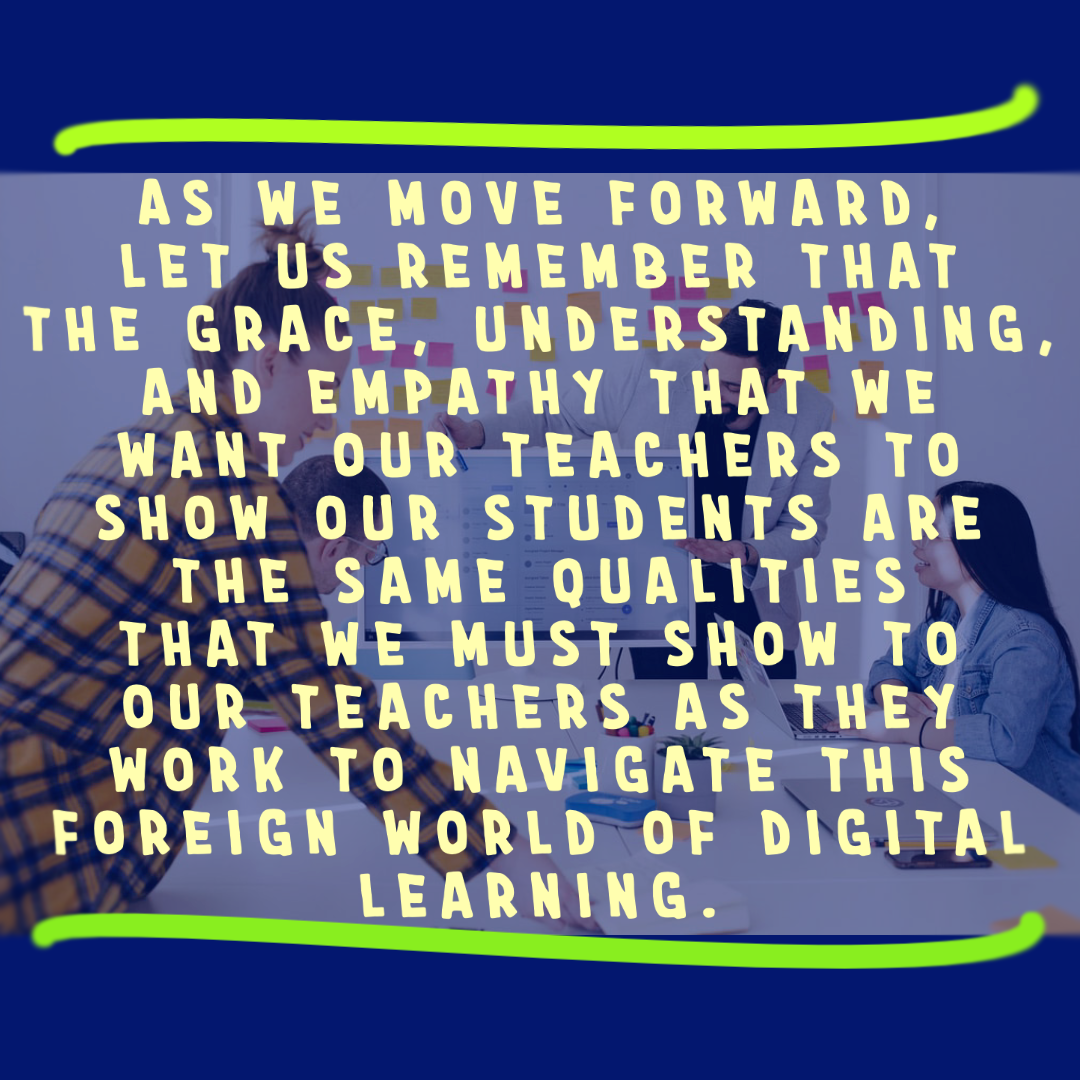 Imagine going to a country that you have never been to before. One where they speak a different language where you recognize just a few words. Then imagine that the locals expect you to be proficient in just a few days of arriving. This is what the experience has been like for many educators as they have adapted to teaching in a digital/virtual environment. When schools closed in March due to Covid, many teachers were immediately thrown into remote learning where the natives expected to them to instantly adapt to this new environment and solve problems. My analogy demonstrates the many challenges that educators faced last spring and continue to face this fall. Too often, students, parents, and the community have expectations that educators can be accomplished in digital teaching and pedagogy. However, simply adapting your face to face learning experiences to digital instruction is not as straight forward as many seem to think. We must continue to give our educators grace as they work to become proficient digital teachers. I equate this shift as my experience as a English speaker when I hear German. I recognize a few words and feel like I should know a lot but sadly, I don’t. German has some similarities but the truth is that I am not very functional in German. This is exactly what our teachers are experiencing. Good teaching is good teaching. We all know it when we see and we definitely know when the teaching is not as good. But adapting to a digital environment requires educators to navigate through many barriers. Some of these barriers involve ensuring that all students have access to high speed internet at home. Some of the other barriers involve making sure that students know their log in credentials and that parents understand how to use digital tools if their students do not. Often these barriers are beyond what teachers have the ability to influence, yet, they try. These barriers are challenging. But perhaps, more challenging than overcoming barriers, is developing a plan to support all learners using sound pedagogy and technology. Merging them together is often a challenge. Further, the teacher must adjust and provide multiple ways to support learners who may learn in different ways. In some ways, it requires looking into a “crystal ball” and hoping that you receive the messages needed to support all the ways that students can learn. Another important factor to consider is that in face to face instruction, teachers have trained for a minimum of four years with lots of support from college professors and experienced practitioners. Most teachers also receive at least three years of support when they start teaching from their school and experienced professionals. All of these help to create a path in which a teacher has the opportunity to grow into success with support from others. Sadly, most educators have had minimal experience with practicing to become a digital educator. Most school systems lack dedicated professional learning opportunity and digital teaching specialists to help teachers. Further, most educators have received minimal, if any, experience in being digital educators during their undergraduate preparation. In fact, I am not familiar with any teacher prep programs that provide an introduction or extended experience with digital teaching. Yet, given these challenges, teachers still manage to make it work. While it can be a bumpy road, it is the desire to ensure that all students can become independent and resilient learners that motivate teachers to move forward. Teaching digitally is not easy. It takes time and requires much deliberate and intentional preparation. It also requires ensuring that the necessary support and preparation is in place. It seems that many of the systems and processes that are in place still have much room to grow to fully support our educators though. As we move forward, let us remember that the grace, understanding, and empathy that we want our teachers to show our students are the same qualities that we must show to our teachers as they work to navigate this foreign world of digital learning.
0 Comments
|
Brian's Blog
The ideas shared here are my own and do not necessarily represent my employers, associations, or organizations. These thoughts are entirely my own. Archives
May 2024
Categories |
 RSS Feed
RSS Feed